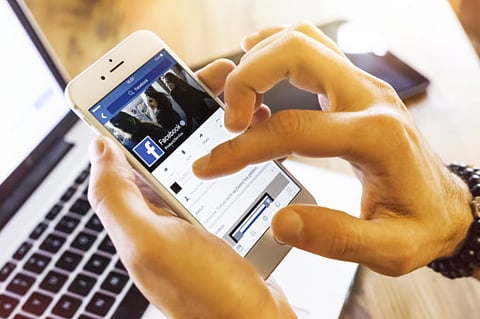How social media encourages us to push our extreme version
Once more and more people recognise that social media is inherently anti-social, it can be successfully challenged

Facebook has finally acknowledged the academic studies that say social media is bad for your health. I should know: I’ve just gone cold turkey. It’s been two weeks since I last tweeted and Tim Stanley feels great. I’ve lost weight, spoken to my family for the first time in years and have started work on a book called ‘Hey Loser, Put Down That iPhone!’ There’s a photo of me on the front cover in a leotard, throttling the Twitter bird.
It’s an addiction with some good side effects. Social media has made it easier to advertise, sell, run for office and stay in touch. It means that the grandma who lives hundreds of miles away can see all the photos of her family’s holiday to Egypt on Facebook. Although, if I was that grandma, I’d be inclined to type: “Looks fun. How about inviting me next time?”
And that’s where the physical problems tip into the existential: the gap between reality and online fantasy. Social media is for many an alternative to being social: it means you don’t have to speak to granny in person. Moreover, we can choose precisely what grandma gets to see of our lives; not quite the whole picture, a collage of approved angles. In the Seventies, Susan Sontag wrote perceptively of how human beings use cameras to control our experience of things: the tourist sees the pyramids, he photographs the pyramids, the pyramids have been put in their place. In the old days he would then bore us all with a slide show: Giza shot out of focus, the heads chopped off the camels. Social media now accentuates the theatrical power of the camera by allowing the tourist to airbrush and disseminate said images, to give the impression of the perfect holiday to a boundless audience. The internet isn’t just a lens into our lives, it’s also a stage for us to perform on, and the effects, particularly on young girls obsessed with body image and the scrutiny of peers, can be devastating. One sad inquiry into the death of a teenager who had been bullied at school and online found that some of the hate mail she received may have been posted by herself.
‘Big-haired Nazi’
Social media encourages us to push the extreme version of ourselves: Beautiful and ugly, victim and sadist. Few people, I’m convinced, are as ghastly in real life as they are on Twitter: The anonymous person who calls me a “big-haired Nazi” is probably a sweet old lady who is just frustrated that her grandchildren won’t call. The opposite to this rule is true, too: No one is as virtuous in real life as they appear online. And yet the thing that has probably driven me off Twitter — more than the abuse or the name-calling or the demands that I get a haircut — are the people who seem to be shocked and appalled by the most banal things. If a newspaper publishes the headline ‘MP leers at woman on bus’, within seconds there is a chorus of “filthy beast”, “sack the pervert” and “this is exactly why men shouldn’t be allowed on buses”.
— The Telegraph Group Limited, London 2018
Tim Stanley is an English blogger, journalist and historian.
Sign up for the Daily Briefing
Get the latest news and updates straight to your inbox

